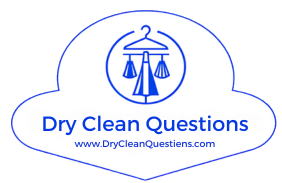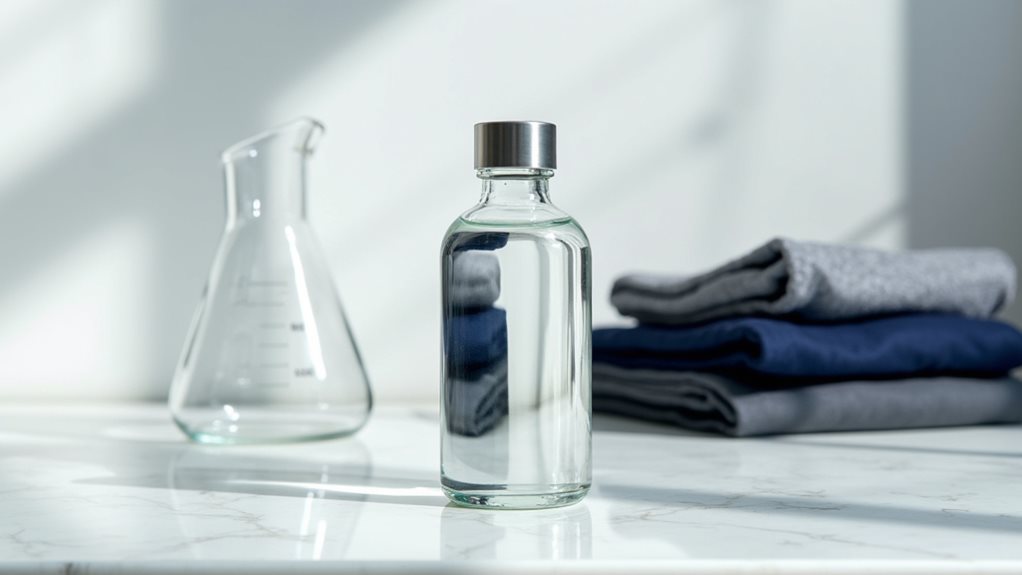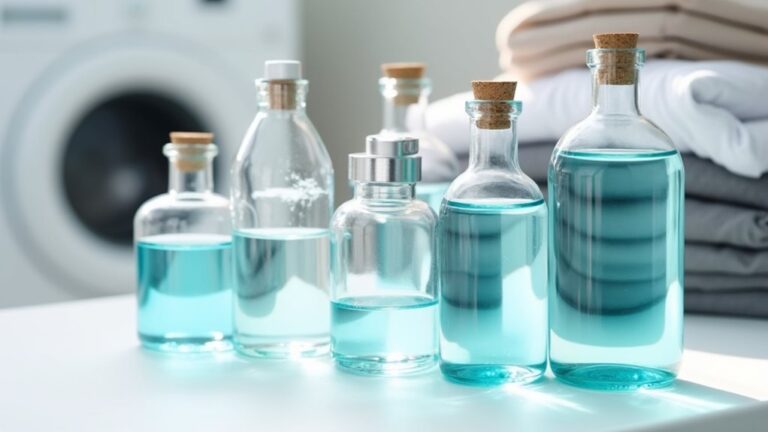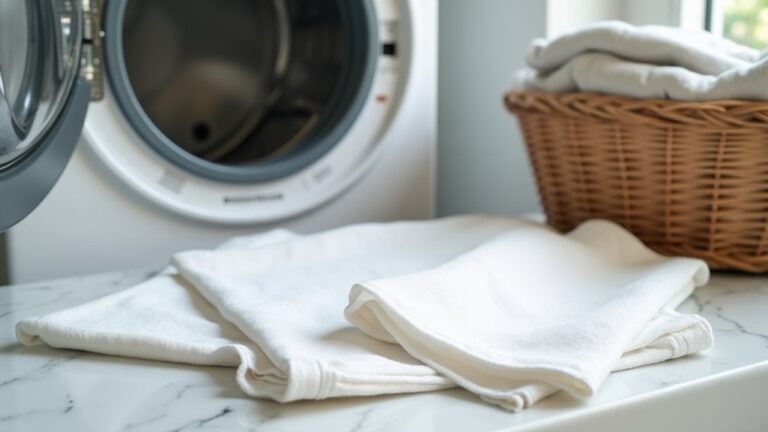You can absolutely buy dry cleaning fluid, though you’ll find yourself limited to consumer-grade options that prioritize safety over the industrial-strength solvents professionals use. Think of it like choosing between a reliable Honda Civic and a Formula 1 race car—both get you where you’re going, but one’s actually practical for everyday folks like us! Your best bets are eco-friendly alternatives like siloxane-based cleaners or home dry cleaning kits from retailers like Home Depot and Joann’s, since the heavy-duty stuff like perchloroethylene faces serious legal restrictions due to health concerns. Understanding these different types and where to find them opens up a whole world of fabric care possibilities.
Understanding Different Types of Dry Cleaning Solvents
The world of dry cleaning solvents can feel like maneuvering a chemistry lab when you’re just trying to save your favorite silk blouse, but understanding these different options will help you make smarter choices for both your clothes and your health.
Perchloroethylene (Perc) remains the workhorse of dry cleaning solvents, cutting through grease like butter, though it’s gradually being phased out due to health concerns—think of it as the effective but problematic older sibling.
Synthetic petroleum gets marketed as “green,” but it’s still a VOC that contributes to ozone formation.
Siloxane, used by fewer than 5% of cleaners, offers gentle, biodegradable cleaning that’s actually skin-safe.
Meanwhile, wet cleaning often outperforms traditional methods entirely, proving sometimes the “old-fashioned” water approach wins. 🧪
Newer eco-friendly options like liquid carbon dioxide are emerging as safer alternatives that still provide effective cleaning power for delicate fabrics.
Legal Restrictions and Regulations for Consumer Purchase
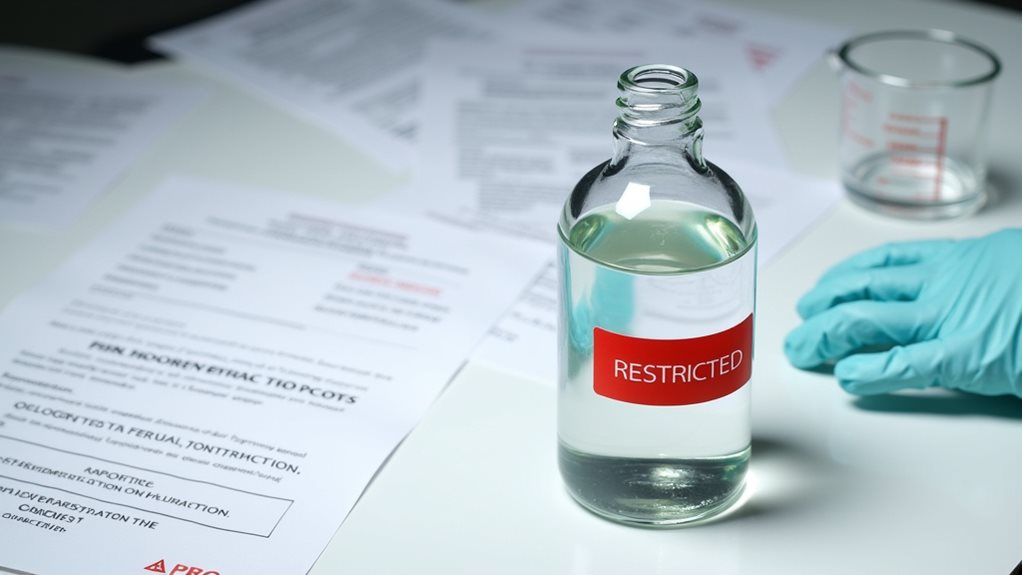
Why can’t you just waltz into your local hardware store and pick up a bottle of Perc like you’d grab paint thinner or motor oil?
Well, the reality is that dry cleaning fluid faces serious legal roadblocks that’ll make your head spin faster than a washing machine on steroids.
The EPA and local air quality departments have created a regulatory maze that impacts your ability to purchase these solvents:
- State-specific bans – California’s phased Perc restrictions mean you’re out of luck in the Golden State.
- Permit requirements – Many areas demand certifications for handling hazardous materials before purchase.
- Environmental compliance – Local regulations vary wildly, so you’ll need to research your specific area.
These restrictions exist because tetrachloroethylene is a chlorinated hydrocarbon that poses significant environmental and health risks when handled improperly.
Smart move? Check your state and local regulations before attempting any dry cleaning fluid purchases.
Professional vs. Consumer-Grade Cleaning Products
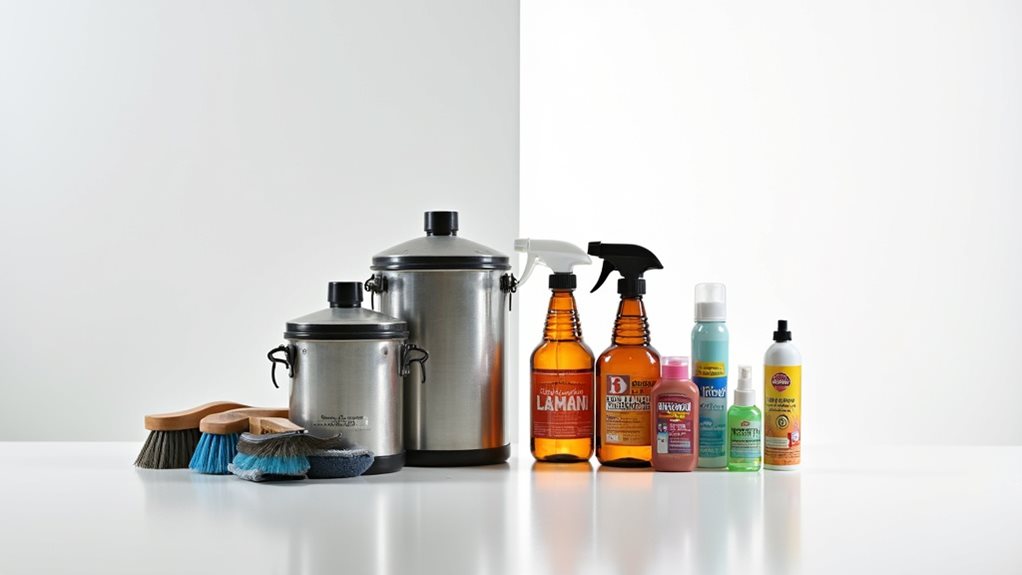
Assuming you’ve maneuvered those regulatory hurdles and you’re still determined to handle your own dry cleaning, you’ll quickly discover that not all cleaning fluids are created equal, and the gap between what professionals use versus what you can buy at the store is wider than the Grand Canyon.
Professional dry cleaner solvents like perchloroethylene pack serious punch, requiring specialized equipment and training that would make your head spin 🤯.
Meanwhile, consumer-grade options like Forcefield® prioritize safety over raw power, trading some effectiveness for peace of mind.
You’re fundamentally choosing between a Formula 1 race car and a reliable Honda Civic – both get you there, but the experience differs dramatically regarding cost, complexity, and results.
Newer eco-friendly options like GreenEarth silicone-based solutions offer a middle ground between traditional industrial strength and consumer safety, though they’re typically only available through professional cleaning services.
Safer Alternatives for Home Fabric Care
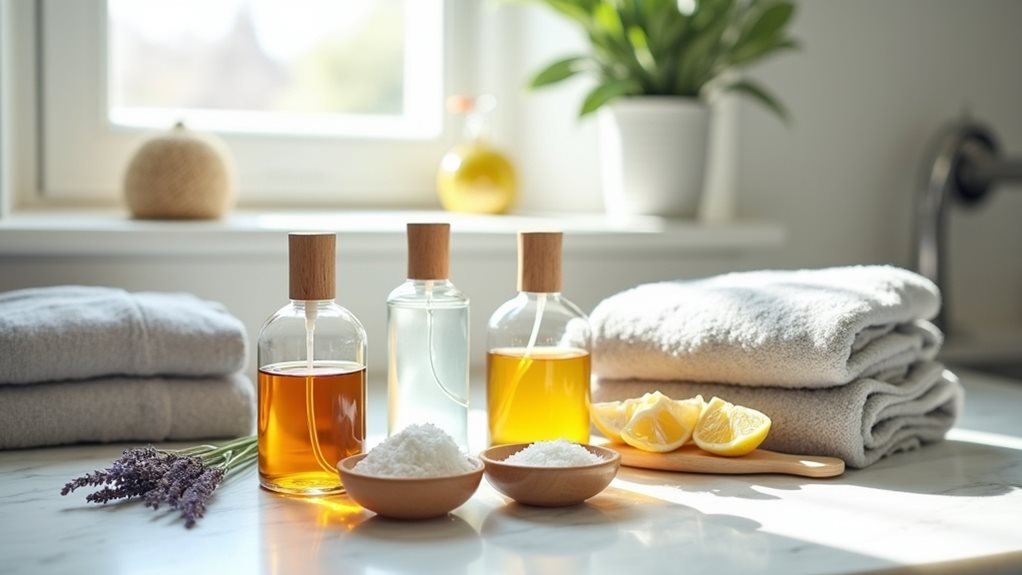
While hunting for gentler approaches to fabric care might feel like searching for a unicorn in your local grocery store, I’ve discovered some genuinely effective alternatives that won’t leave you worried about what you’re breathing in or touching.
Effective fabric care alternatives do exist—you just need to know where to look beyond the overwhelming grocery store aisles.
After years of trial and error (and one embarrassing incident with a ruined silk blouse 😅), I’ve found cleaning solutions that actually work:
- Water-based wet cleaning methods effectively tackle both greasy pizza stains and water-based spills without harsh solvents.
- Siloxane-based cleaners offer biodegradable, skin-safe options that won’t irritate sensitive skin like mine.
- Natural citrus-based products like Forcefield® combine powerful stain removal with safer ingredients.
Home dry cleaning kits, particularly dryel’s system, have saved my delicate garments countless times while keeping my conscience clear.
You can find these safer alternatives at specialty cleaning supply stores, hardware stores, and online marketplaces like Amazon, though always check that the products meet local safety regulations.
Where to Source Specialty Cleaning Solutions
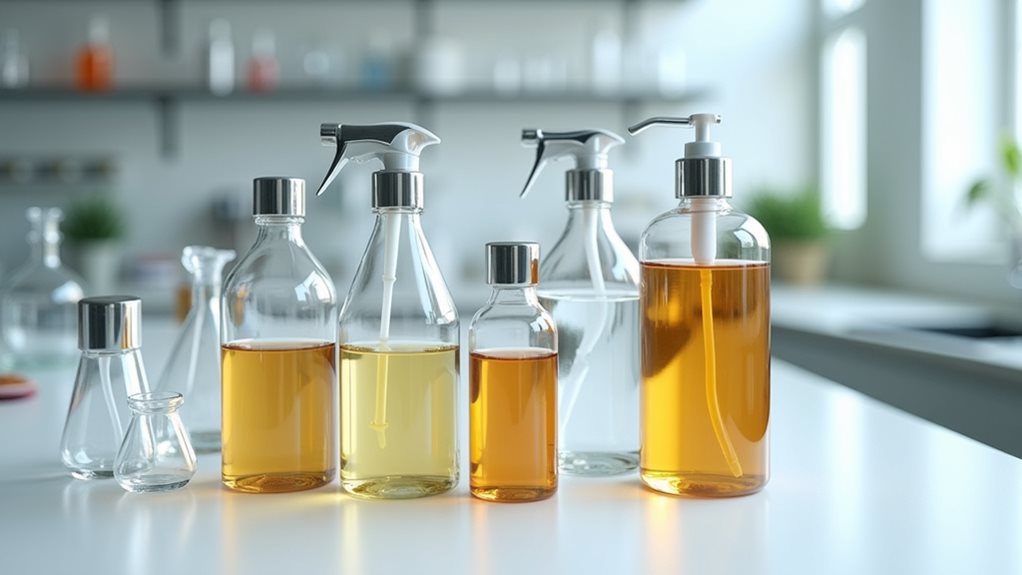
Finding the right specialty cleaning solutions requires knowing where to look, and honestly, I’ve learned this lesson through countless frustrating trips to stores that promised everything but delivered disappointment.
You’ll find reliable dry cleaning solvents at retailers like Linens n Things, Hancock Fabrics, and Joanns, where Forcefield® brand consistently delivers quality results.
Home Depot’s also become surprisingly helpful for specialty solutions, though I initially doubted their fabric care expertise 😅.
Online shopping’s your best friend here, offering convenience and variety that brick-and-mortar stores can’t match.
For commercial needs, specialized distributors provide professional-grade solvents like CleanPerc™, complete with proper disposal services.
Keep in mind that professional-grade solvents like perchloroethylene (PERC) require proper licensing and safety certifications due to their hazardous nature.
Always check local air quality regulations before purchasing, and don’t forget to hunt for multi-product discounts under household necessities—your wallet will thank you later.
